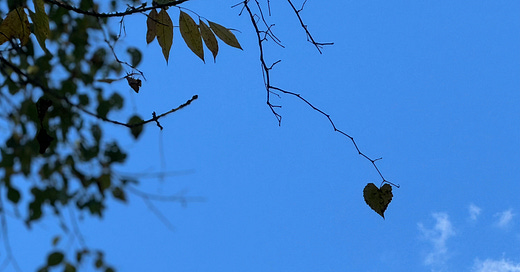Liam Payne's Tragic Death Is a Devastating Call for Collective Empathy
So many of us crave a single target to blame, a space to channel our grief. But if anything, this calls for more connectedness—more grace.
The discourse surrounding Liam Payne’s death has been nothing short of devastating, heated, and at times controversial.
Liam has long talked about his history with addiction, and it’s come to light that this played a role in his untimely death. Years ago, he revealed that he had fallen into alcoholism and drug abuse. Specifically, he went on “The Diary of a CEO” in 2021 to discuss his struggles with his mental health.
“I was worried how far my rock bottom was going to be,” he said at the time, admitting that he had experienced “severe suicidal thoughts.”
“There is some stuff that I have definitely never, never spoken about,” Liam continued. “It was really, really, really severe. And it was a problem. And it was only until I saw myself after that, I was like, 'Right, I need to fix myself.'”
“I just didn’t like myself very much,” he added.
Fast forward to the present, we’ve learned that staff at CasaSur Palermo Hotel in Buenos Aires—where Liam had been staying—had called the police shortly before he fell to his tragic death yesterday. A hotel worker stated he “had too many drugs and alcohol and, well, when he is conscious, he is trashing the entire room.” He worried he would do something to harm himself, explaining how high up his balcony was.
We could sit here all day ruminating on what could have been done differently. We could evaluate Liam’s long history with addiction—a real problem that requires tailored treatment and gentle care, not judgment, callousness, or even indifference.
We could also consider how that disease impacted those around Liam, like his ex-fiancée, Maya Henry. In the days prior to Liam’s death, Maya recounted her experience of being on the receiving end of his mental health spiral, which to her felt like a form of manipulation—too much responsibility for one individual to assume.
Now, many are blaming Maya for his death.
But at the end of the day, Liam was sick. He was suffering. That does not discount the abuse he allegedly carried out. That does not smear blood on his accuser’s hands. That also does not mean he didn’t deserve a chance to get better—to be better.
This man had a family—a child.
The reality is that we as a society must handle these issues with care. Multiple truths can exist at once: we can be heartbroken by the loss of Liam; we can also be heartbroken by the trauma he caused before his passing.
And a third truth, hidden in plain sight: None of us know what went down behind closed doors. We never did, and we likely never will. To invalidate anyone’s experience without full knowledge of the situation would be in poor taste. This goes for both sides of the coin.
So, with the thousands of TikToks blaming Maya, and the thousands more painting Liam as a force of evil with an inevitably gruesome fate, the entire discourse just feels inhumane.
I get it: so many of us crave a single target to blame, a space to channel our grief. But if anything, this calls for more connectedness—more grace, both with ourselves and those around us.
Rest in Peace, Liam Payne.




